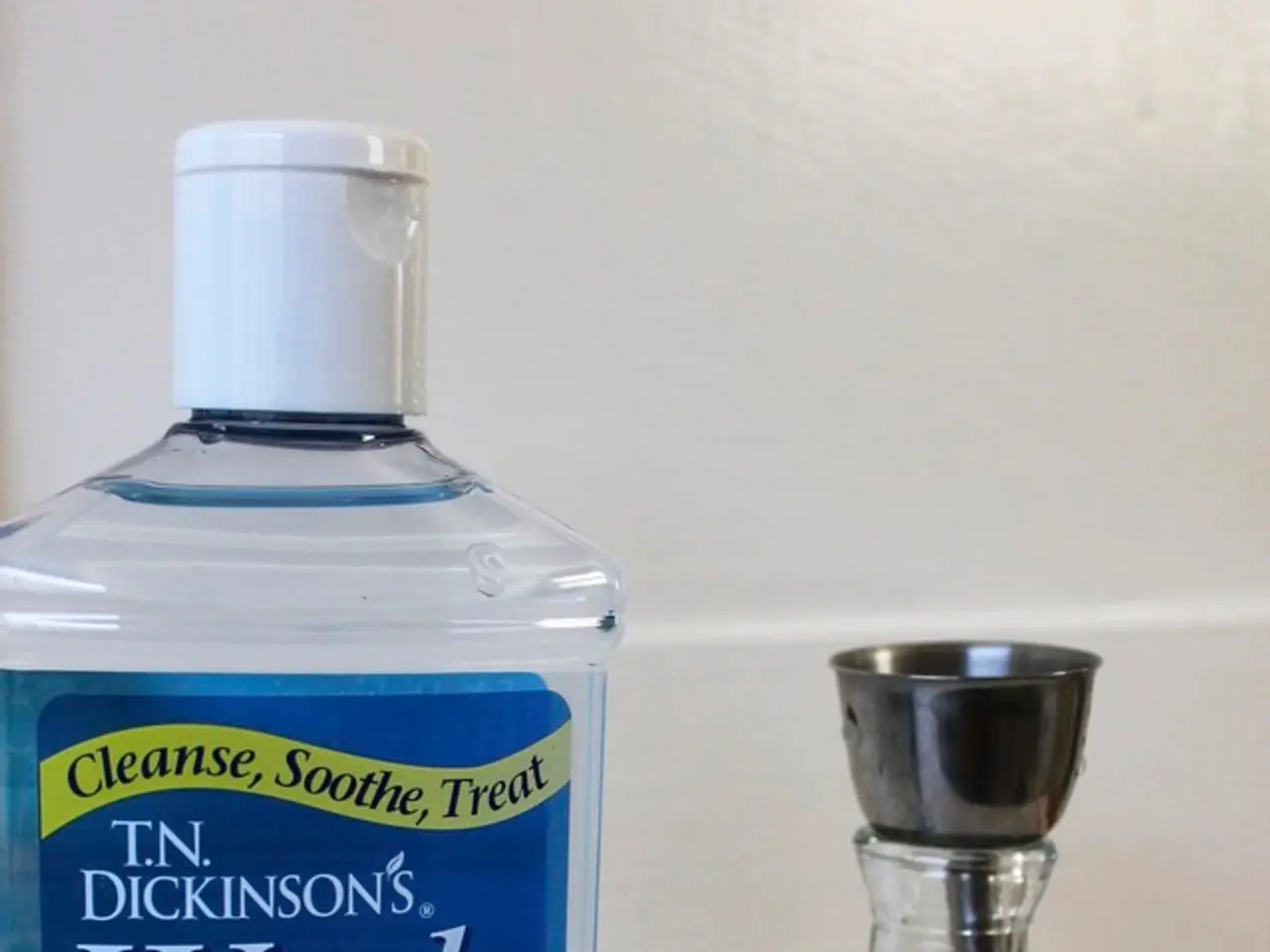Question: Is It Recommended to Use Dietary Supplements for Hyperactive Thyroid?
Hyperthyroidism, a condition where the body produces too much thyroid hormone, requires careful management to ensure it doesn't worsen or interfere with treatment. One key aspect of this management is understanding which supplements to avoid and which ones might be beneficial.
Supplements to Avoid
For individuals with hyperthyroidism, supplements containing or increasing iodine should generally be avoided. Excess iodine can exacerbate the condition, posing risks for hyperthyroid patients. This includes iodine supplements and iodine-rich foods, as well as thyroid hormone supplements or "thyroid glandulars." These should only be used under medical supervision [1][4].
L-tyrosine supplements should also be avoided by people with hyperthyroidism. L-tyrosine is an amino acid that helps the body produce enzymes, melanin, and thyroid hormone. Increased intake can lead to higher thyroid hormone production, which is not beneficial for those with hyperthyroidism [3].
Caution with Certain Supplements
While selenium, calcium, vitamin D, and iron might be considered by a healthcare provider, caution is advised. Selenium, for example, is an essential mineral that supports a healthy thyroid gland and may be recommended for hyperthyroidism. However, the dose must be carefully controlled to avoid toxicity, and anyone with thyroid disease should consult a doctor before use [2][5].
Iron, while important for maintaining adequate iron intake, should be used carefully as some iron-rich foods also contain iodine. Similarly, vitamin D and calcium supplementation might be necessary in hyperthyroid patients, especially if deficiency or bone loss is present [1].
Thyroid-specific multivitamins may help by providing essential nutrients to support thyroid function, but they often contain iodine or other components that could affect hyperthyroidism. As such, they should be used only under healthcare guidance [3].
Recommended Supplement: Selenium
Selenium is important for a healthy thyroid gland, but most people are getting enough selenium in their diets. However, if you have hyperthyroidism or thyroid eye disease, your healthcare provider may suggest a selenium supplement, up to 200 mcg [3].
The recommended dietary allowance (RDA) for selenium is 55 mcg for adults age 19 and older, 60 mcg for pregnant individuals, and 70 mcg for lactating individuals [3].
Important Considerations
It's crucial to remember that not all thyroid supplements are created equal, and the amount taken can matter. The Food and Drug Administration does not evaluate self-selected supplements, so it's essential to discuss any supplements with your healthcare provider before taking them.
Hyperthyroidism can cause issues such as heart palpitations, weakness, shakiness, trouble sleeping, and more. Some people may turn to supplements to manage these symptoms, but it's important to remember that treatment is available to help manage hyperthyroidism and live a healthy life.
In summary, it's critical to avoid iodine supplements and be cautious with any supplement that might stimulate the thyroid. Supplements such as selenium, calcium, vitamin D, and iron may be recommended by healthcare providers depending on individual deficiency and treatment plans, always under medical supervision to avoid exacerbating hyperthyroidism [1][2][3][5].
Lastly, supplements should not replace doctor-prescribed medication or personalized advice from a healthcare provider. Always consult with a healthcare professional before starting any new supplement regimen.
- Individuals with hyperthyroidism should generally avoid supplements containing or increasing iodine, as excess iodine can worsen the condition.
- L-tyrosine supplements should be avoided by people with hyperthyroidism, as increased intake can lead to higher thyroid hormone production.
- Selenium, while important for a healthy thyroid, should be used carefully in hyperthyroid patients, as the dose must be controlled to avoid toxicity.
- Supplements such as calcium, vitamin D, and iron may be recommended by healthcare providers depending on individual deficiency and treatment plans, always under medical supervision to avoid exacerbating hyperthyroidism.




